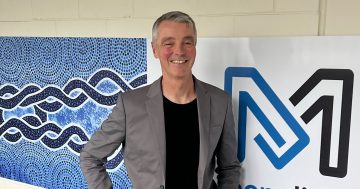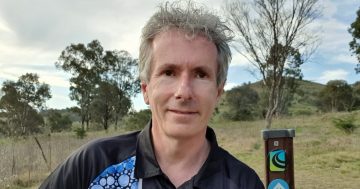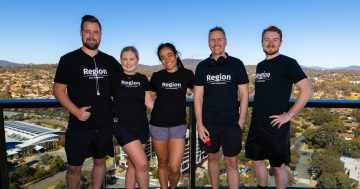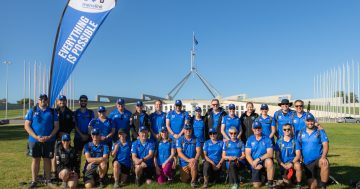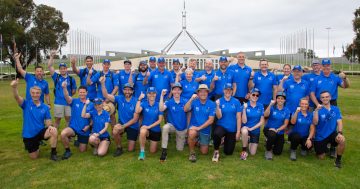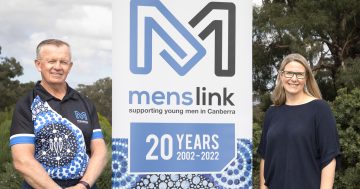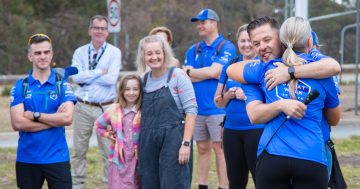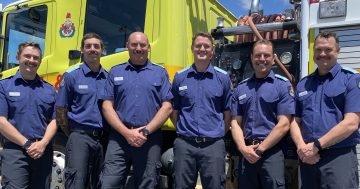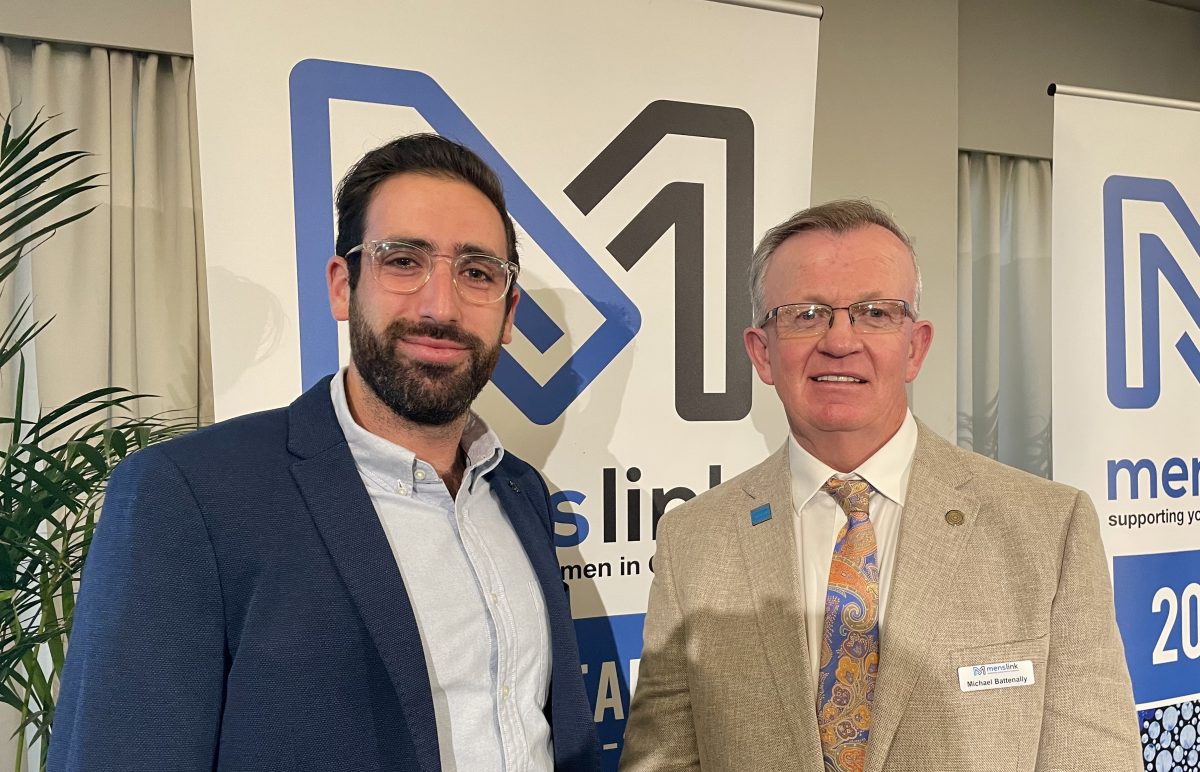
Dr Zac Seidler with Menslink Chair Mike Batenally at the big breakfast. Photo: Genevieve Jacobs.
His name was Sam, or something like that.
He sat in clinical psychologist Dr Zac Seidler’s office, week after week, hunched, silent, hands tightly knitted together. He was there for help but gave away little.
Until one day it all came flooding out. The day before, he’d tried to take his own life.
“Guys like Sam are afraid to be fragile or be vulnerable. So instead, they often resort to violence, risk taking and problematic substance use to counter that lingering feeling they’re in some way weak or flawed,” Dr Seidler told this year’s Menslink Big Breakfast at the QT Hotel.
“Masculinity has been sold to these men as a one size fits all way of being, and over time has become a tool for suppression, repression. And now depression.”
A leading men’s mental health expert, Dr Seidler is director of Health Professional Training at Movember and a post-doctoral fellow with Orygen. His particular focus is the high rates of male suicide in Australia.
He told more than 400 guests at this week’s fundraising breakfast that Australian men were often caught in a destructive cycle where the more they denied their vulnerability, their pain, physical or psychological, the more uncertain and fragile they became.
“Men’s thoughts and feelings fester and remain unchallenged, stifled by fear and what follows are the trigger-happy often detached and confused behaviours that have flashed across our front pages,” he said.
It’s a familiar scenario for Menslink. The organisation is marking 20 years of working with young men, offering them counselling, mentoring, support and school programs specific to their needs and backed up by years of experience.
Unique among mental health organisations, Menslink focuses on boys, young men and those who identify as male. Eighty per cent of clients have been raised by a single parent, almost always a mother.
Working on the preventative end of the domestic and family violence cycle with perpetrators and victims, Menslink diverts problematic behaviour patterns, intervening before they cascade with unstoppable consequences.
Dr Seidler told the breakfast that all too often, responses to men’s mental health were reactive.
“Boys particularly fear this uncertainty about how to move through the world,” he said.
“We need to help them navigate that road to self awareness. We need to open up lines of communication early in these boys so they know they can admit that sometimes they’ve got no bloody idea what they were doing.”
He said there were plenty of reasons the community needed to care.
“Whether it’s youth unemployment, school dropout rates, mental health and substance abuse statistics of juvenile justice, boys are outdoing themselves.
“These are dire outcomes and it isn’t okay. It shouldn’t be expected or excused. We have to start doing things differently.”
He commended Menslink’s approach to working with every aspect of the situation when young lives began careening out of control. But he said there were no simple answers.
“It is persistence,” he said. “People always ask me, ‘How am I going to go about checking in with him, it’s really uncomfortable’. Be relentless.
“Let’s not place endless responsibility on the shoulders of young blokes trying to work out how to navigate this thing we call life. Rather, let’s offer them support and role modelling, career programs, and help them grow.
“We must treat men delicately, tenderly and with compassion. We should wear our fragility with pride so that young guys growing up in the world don’t see it as a marker of shame but rather one that might just save their life.”
Young Sam made it through the darkest times too. He began the long road to recovery and realised he deserved love and compassion, was fragile and needed support just like everyone else.
One day, he gave Dr Seidler the suicide note he’d planned to leave behind, with permission to share its contents.
“When he left, I looked down and noticed on the back of the letter that Sam had scrawled in red ink ‘take off the mask. I promise you’ll be able to breathe easy’. Sam is definitely still here.”
Find out more about Menslink’s work and how to support the organisation here. The Menslink Great Walk takes place in November. Click here to support walkers and raise funds.












